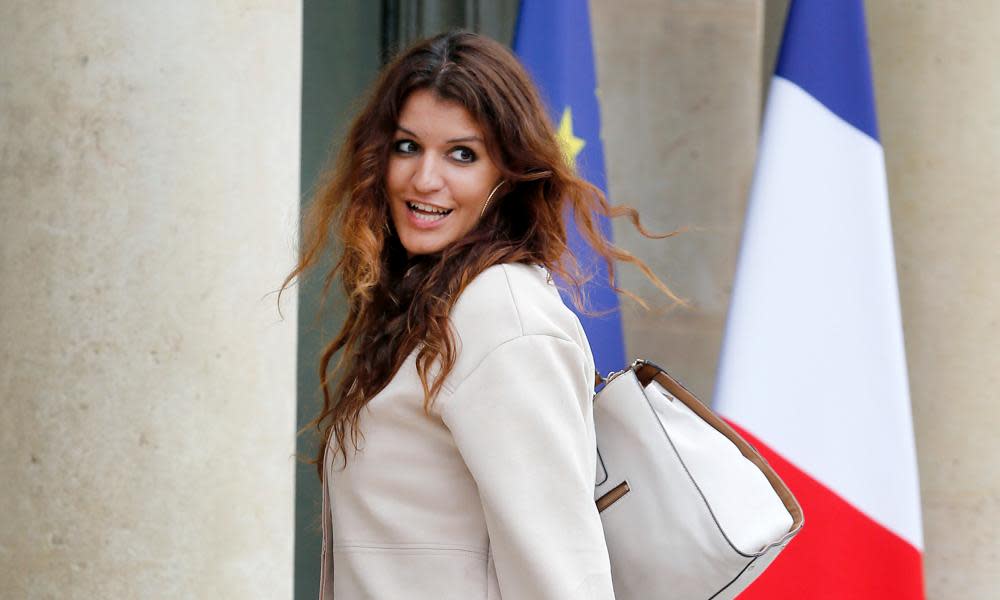Frenchmen need educating, not fines | Agnès Poirier

By culture and by history, the demands made on French women by French society are astronomic. They are expected to be beautiful, but in an effortless way. They have to know how to rebuke men’s advances but always with charm, wit and possibly even panache. They are inherently supposed to know how to play the French dance of seduction and be able to escape the unwanted embrace (usually from older men) with a smile and a pirouette. And never to complain: men’s interest in them is, after all, only a tribute to their great beauty and many qualities. And so the story goes…
One should feel grateful to be the object of so much male attention, shouldn’t one? Here is a very French paradox, one in which President Macron’s government is trying to put some order, by legislating against street sexual harassment such as wolf-whistling. “A €20 fine would be a bit humiliating, €5,000 would be more of a deterrent,” recently declared Marlène Schiappa, the 34-year-old French minister for gender equality. Certainly, but should we go there? And is this really the best way to tackle sexism?
Born in the 1970s, I am the child of a feminist who showed both incredible charm and steel-hard qualities from an early age and managed to have both a successful career as a playwright, writer and journalist, sometimes earning more than her actor husband, and be a devoted mother of three. She taught me how to be streetwise and adopt some very useful attitudes when alone in the streets of Paris at night.
Parisian cafe owners speak about their difficulty in hiring young male waiters who will obey female chefs’ orders
I am confident that her advice saved me a few times from some potentially dreary encounters. Let’s be blunt, I mean physical harm – rape. The streets of France are a minefield for a young woman. Not only do French women have to suffer the “ordinary” sexism that you also find elsewhere in relatively civilised Europe: wolf-whistling, insistent chatting-up verging on the menacing, being followed, insulted or talked dirty to and having to endure lewd looks or gestures.
French women also have to somehow measure up to our culture of seduction, which originated with both amour courtois in the middle ages and later with 18th-century frolicking, so well depicted by French playwright Pierre de Marivaux. His play The Game of Love and Chance is a good introduction to séduction à la Française where love is a harmless and pleasurable game. In other words, if we refuse to play the game, we are just bad sports and spoil the fun.
The feminist in me, who feels particularly close to Simone de Beauvoir and Élisabeth Badinter but also Femen for their physical courage at challenging religious misogyny – but who is not at war with men, quite the opposite – is in two minds about the current push-back against French masculinity. I don’t identify with new feminist groupuscules such as Chiennes de Garde (“Guard Bitches”) who would be quite happy eradicating the male gender once and for all or putting all men behind bars.
However, I do feel the evolution of the male French mindset must continue, but this is a question of education rather than more legislation. Plenty of laws exist and need only be implemented more often. Did you know that bottom-groping in France may land you in prison for five years? So who needs a €5,000 fine for wolf-whistling? The problem is not the absence of laws, but French education.
And there are new challenges. With the resurgence of religious fundamentalism in France – whether Catholic, Muslim or Jewish – misogyny among young religious men is on the rise. Parisian cafe owners increasingly speak about their difficulty in hiring young male waiters who will agree to obey female chefs’ orders or simply work with them. So, alongside the cliche of the old white male chauvinist pig or sex-addict à la Dominique Strauss-Kahn now stands the young religious French man wary of having contacts with women whom he is raised to look down on.
This is an insidious new frontier in French sexism, one hardly talked about but one that needs to be dealt with urgently. There are also streets in Paris, namely near metro La Chapelle in the north-east of the capital, where the sudden arrival of predominantly male migrants from Africa has created a stark gender imbalance and cultural misunderstanding. “Cafes I used to go to are now male only and it is clear that women are not welcome in the streets. I have had to change routes to go back home and I’m called names just for walking alone,” Aurélie, 38, recently confided to Le Parisien, the capital’s daily newspaper.
The challenge is to tackle prejudice and fight sexism and street harassment whoever commits it. It takes parents to educate their sons to respect women and see them as equal and their daughters to stand up to anyone who will want to demean or abuse them by, for instance, reporting them to the police. It also takes French schools to educate all children, whatever their origin, in gender equality.
They can then grow up together harmoniously, as equals, and later play the most joyous and lighthearted game there is between a man or a woman (or between all other possible variants): amour, the French way.

 Yahoo News
Yahoo News 
